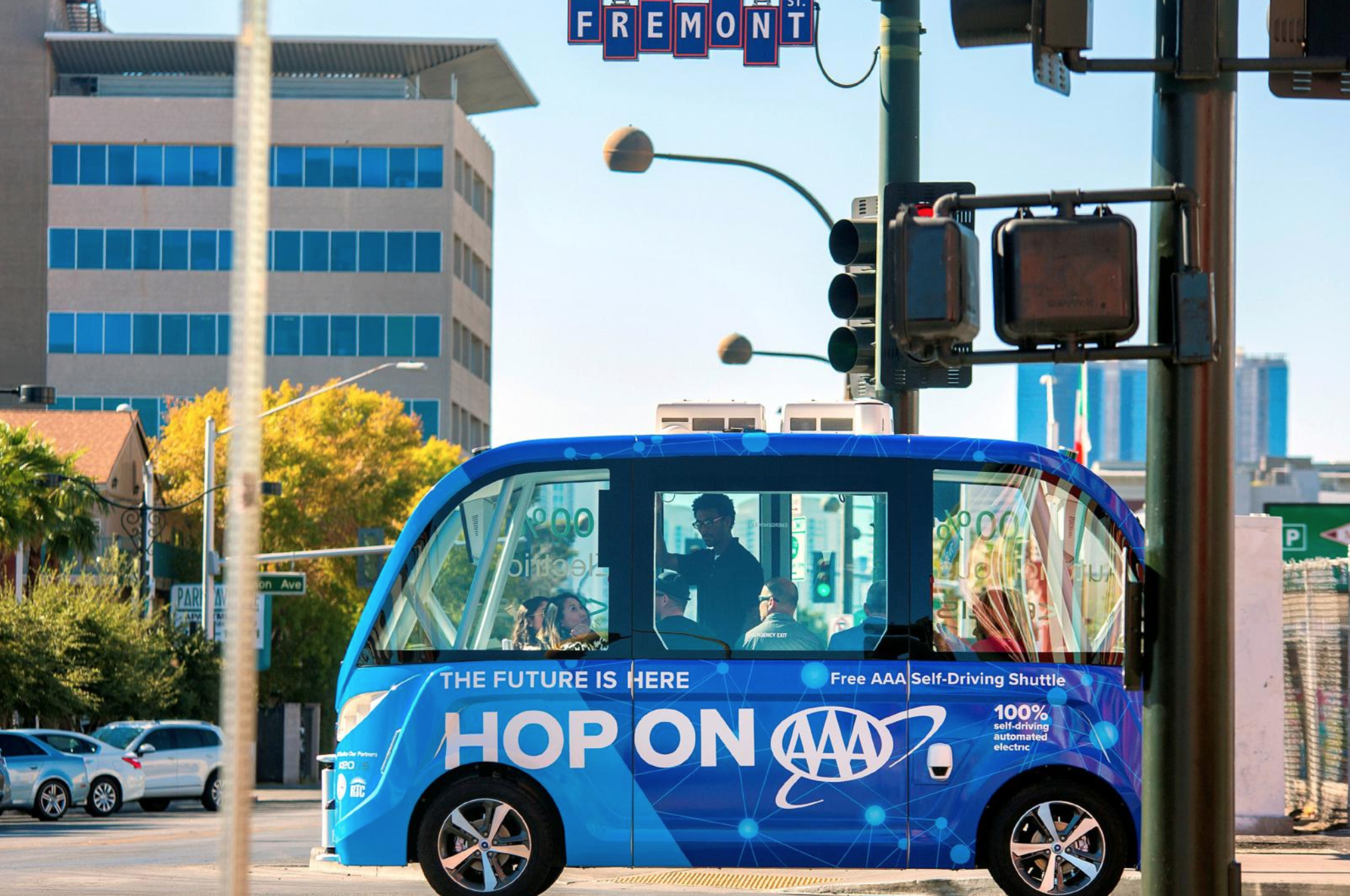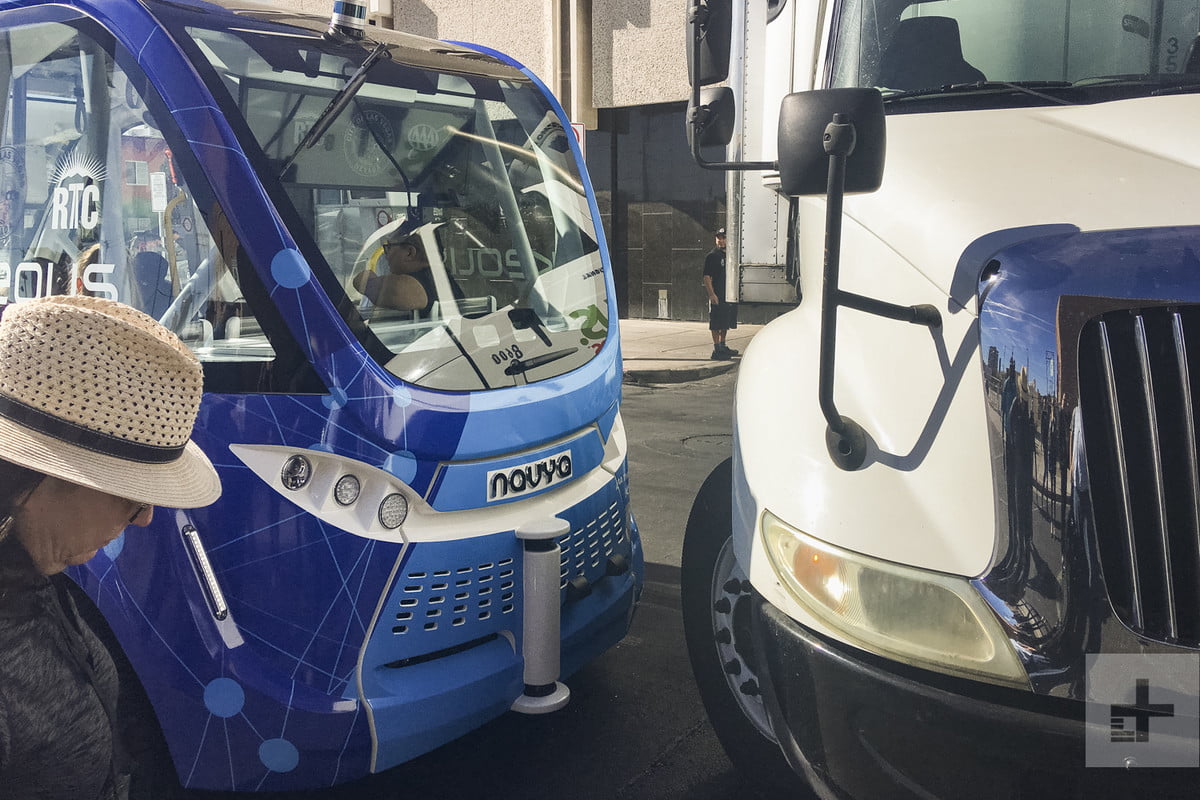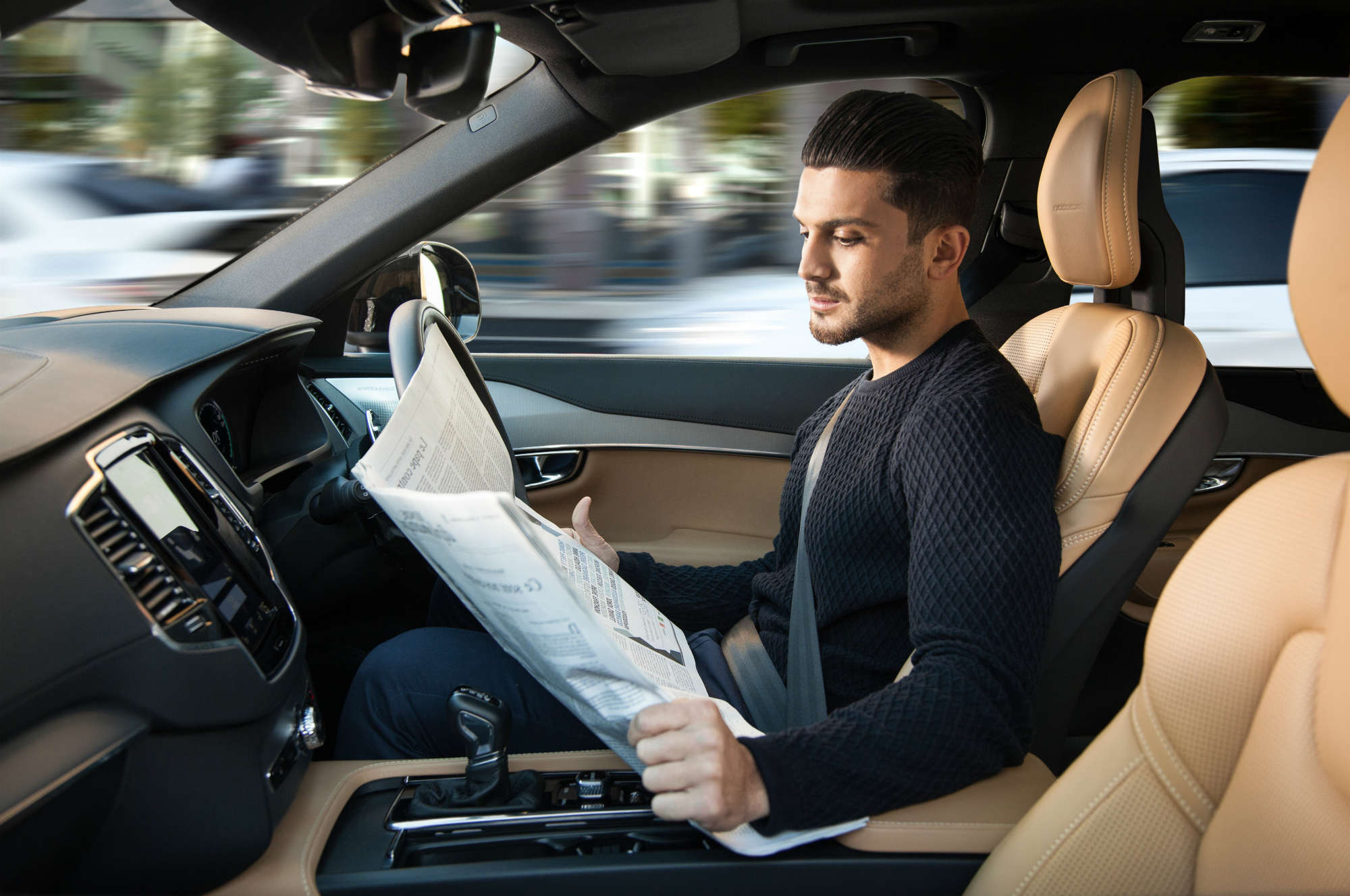As technology advances, our desires, expectations and integration of artificial intelligence into our daily lives also increases as we become more dependent and seek for the convenience that computers provide. Consumers cannot forecast what the new technological breakthrough would entitle. While they don’t solve any issues of the consumer’s current lifestyle, they instead create a new demand of products as they generate a want that the consumer didn’t previously know they wanted in their life.
One of these innovative creations include the series of self-driving technology. But the risk of fully relying on technology and making the act of human intervention completely redundant includes the blind reliance of programs which carry unknown algorithmic bugs and errors. An example of an incident involving ‘smart cars’ was seen where a self-driving shuttle bus crashed during it’s first day of service in Las Vegas.

[The first public self-driving shuttle, launched as a pilot project sponsored by AAA and Keolis is shown in downtown Las Vegan, Nevada, November 10th, 2017. Courtesy of AAA/Keolis/Handout via REUTERS]. (2017, November 10). Retrieved November 12, 2017, from http://www.reuters.com/article/us-autos-selfdriving/u-s-safety-board-to-probe-self-driving-shuttle-crash-in-las-vegas-idUSKBN1DA2K1?il=0

[I was on the self-driving bus that crashed in Vegas. Here’s what really happened] (2017, November 9). Retrieved November 12, 2017, from https://www.digitaltrends.com/cars/self-driving-bus-crash-vegas-account/

[Volvo take the plunge & decide against fully automated cars] Retrieved November 12, 2017, from https://blog.caranddriver.com/volvo-ceo-fully-autonomous-cars-are-worth-10000-extra/
As a result, I would like to ask if the convenience given by automated technology be able to compensate for the health and safety of the consumer? Especially as this technology is still in the developing process, would human-made products ever be sufficiently developed to withstand the responsibility of human-life?
Word count: 448